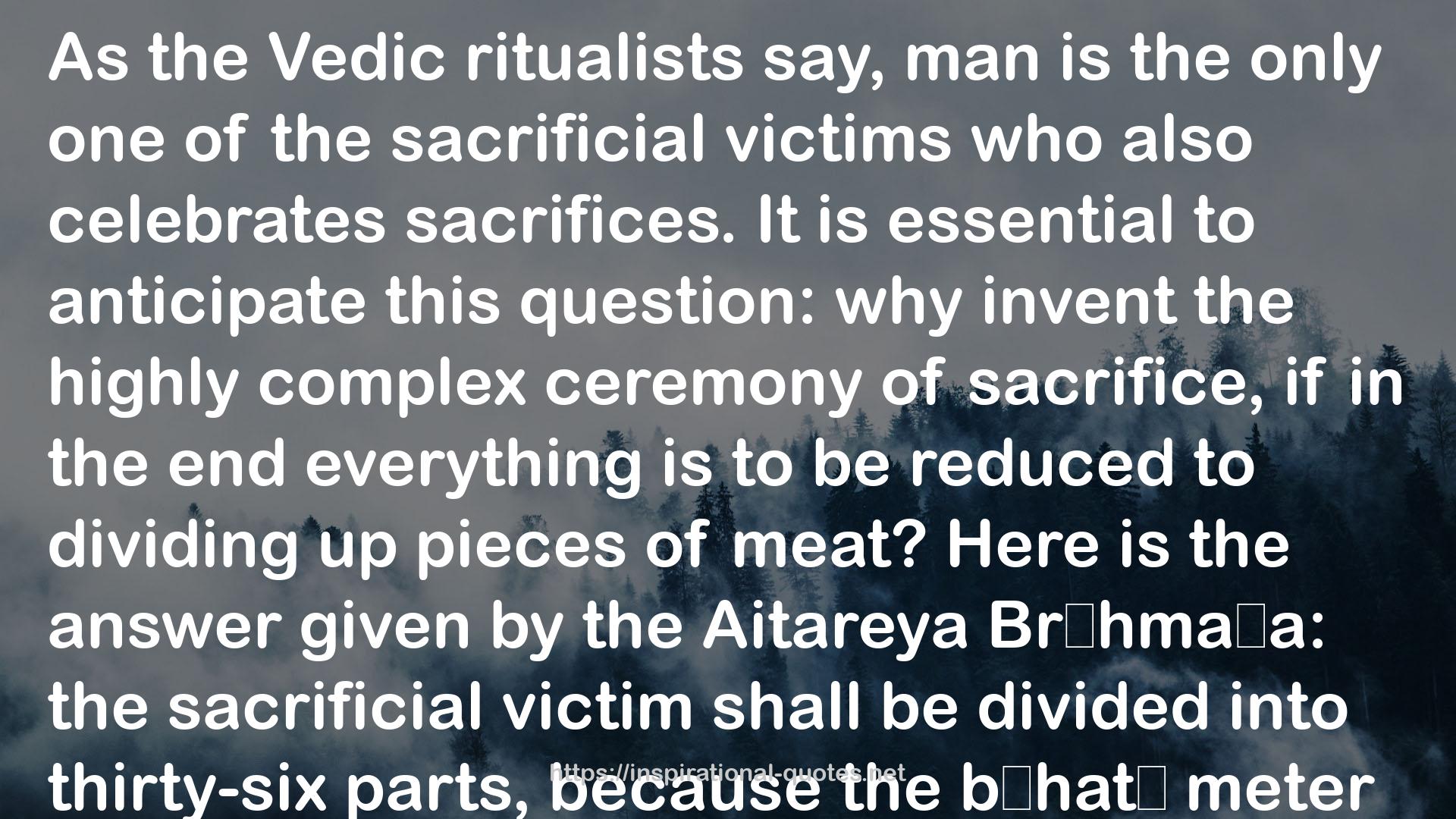" As the Vedic ritualists say, man is the only one of the sacrificial victims who also celebrates sacrifices. It is essential to anticipate this question: why invent the highly complex ceremony of sacrifice, if in the end everything is to be reduced to dividing up pieces of meat? Here is the answer given by the Aitareya Brāhmaṇa: the sacrificial victim shall be divided into thirty-six parts, because the bṛhatī meter consists of thirty-six syllables: “By dividing it in this way, the victim is made into a celestial being, whereas those who proceed in another way tear it apart like rogues or criminals.” And here we see the great role that meter plays in the Veda, as the primary articulation of form, as the first effective device for breaking away from the meaningless and arbitrary succession of existence. Here it is said, among other things, that “the bṛhatī is the mind.” And so, if the mind coils within itself the thirty-six fragments of the sacrificial victim, this alone is enough to transform those pieces of flesh into fragments of a whole that has a life of its own—and is perhaps also “a celestial being. "
― Roberto Calasso , L'ardore
